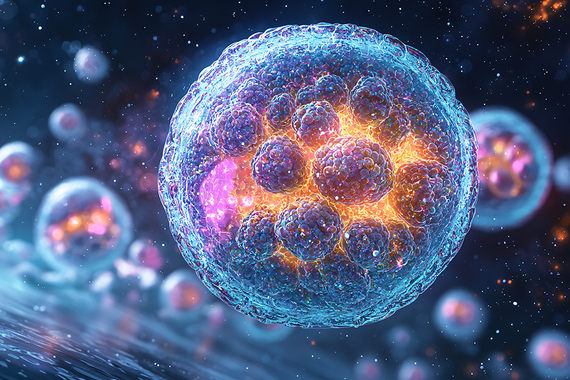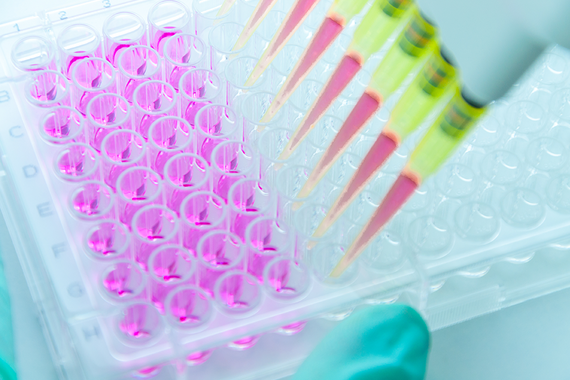-
The University
- Welcome
- Who we are
- Media & PR
- Studying
-
Research
- Profile
- Infrastructure
- Cooperations
- Services
-
Career
- Med Uni Graz as an Employer
- Educational Opportunities
- Work Environment
- Job openings
-
Diagnostics
- Patients
- Referring physicians
-
Health Topics
- Health Infrastructure
Analytical mass spectrometry, cell biology and biochemistry of inborn errors of metabolism
The goal of this research unit is to bridge the gap between molecular changes in rare inborn metabolic disorders and clinical research using state-of-the-art cell-based models and high-resolution mass spectrometry. By creating omics profiles from patient-derived samples and applying cutting-edge functional studies, we translate clinical patient data into validated insights on enzyme dysfunction, substrate accumulation, and biomarker discovery. These newly gained insights will expand and refine our understanding of disease biology.
Head of Research unit
Deputy Head of Research unit

Our research aims

Lysosomal storage disorders
Ongoing research aims to dissect how defective lysosomal enzymes and accumulated substrates specifically in Fabry disease and mucopolysaccharidoses perturb endothelial phenotype, barrier integrity and inflammatory signaling. By linking specific genetic variants, enzyme activity and substrate load in patient-derived endothelial cells to functional readouts, we aim to unravel the mechanisms driving vascular complications and uncover targets for these rare inborn errors of metabolism.

Ultra-sensitive metabolomics & lipidomics in rare neurologic disorders
Applying UHPLC-MS/MS analysis to patient-derived cells, plasma (minimally invasive, metabolite-rich) and CSF (neurochemically precise) for both targeted and untargeted analyses in children with rare neurologic disorders. Comparative profiling against healthy controls holds the potential to uncover disease-specific signatures and novel predictive biomarkers for these devastating disorders.
Together, these complementary strategies empower a fully translational workflow—from bedside sample to bench-top mechanism and back—driving both improved diagnostics and the identification of new therapeutic targets.

Our research projects
- Genotype-phenotype correlation in a primary endothelial cell model of Fabry disease
- Endothelial (barrier) function in Mucopolysaccharidoses (MPS Austria)
- Cardiometabolic and vascular effects of childhood obesity (Stadt Graz)
- Erstellung von Metabolomprofilen aus Plasma und Liquor von Kindern mit seltenen neurologischen Erkrankungen (FWF Herta Firnberg)
- Quantification of Glycosaminoglycans with Tandem Mass spectrometry (MPS Austria)
- Multiomics profiling in Patients with CAMRQ Disease
Team
Members
Cooperation partners
- Ursula Hiden, Universitätsklinik für Frauenheilkunde und Geburtshilfe, Med Uni Graz
- Pedro A. Sánchez Murcia, Lehrstuhl für Medizinische Chemie, Med Uni Graz
- Andelko Hrzenjak, Klinische Abteilung für Pneumologie, Med Uni Graz
- Harald Köfeler, Core Facility Mass Spectrometry, Med Uni Graz
- Axel Schlagenhauf, Klinische Abteilung für allgemeine Pädiatrie, Med Uni Graz
- Florian Singer, Klinische Abteilung für pädiatrische Pulmonologie und Allergologie, Med Uni Graz
- Karin Kornmüller, Lehrstuhl für Medizinische Physik und Biophysik, Med Uni Graz
- Thomas Bärnthaler, Lehrstuhl für Pharmakologie, Med Uni Graz
- Lukas Kellermair, Universitätsklinik für Neurologie, Kepler Universitätsklinikum, Linz
- Kai Kummer, Medizinische Universität Innsbruck
- Bojan Vujkovac, Fabry Center Slowenien
- Thomas Züllig, Institut für Molekulare Biowissenschaften, Uni Graz
- Martin Thonhofer, Institut für Chemie und Technologie Biobasierter Systeme, TU Graz
- Andras Kungl, Institut für Pharmazeutische Wissenschaften, Uni Graz
- Richard Saffery (Molecular Immunity, Infection and Immunity Theme, Murdoch Children’s Research Institute, Parkville, VIC, Australia)
- Boris Novakovic (Molecular Immunity, Infection and Immunity Theme, Murdoch Children’s Research Institute, Parkville, VIC, Australia)


